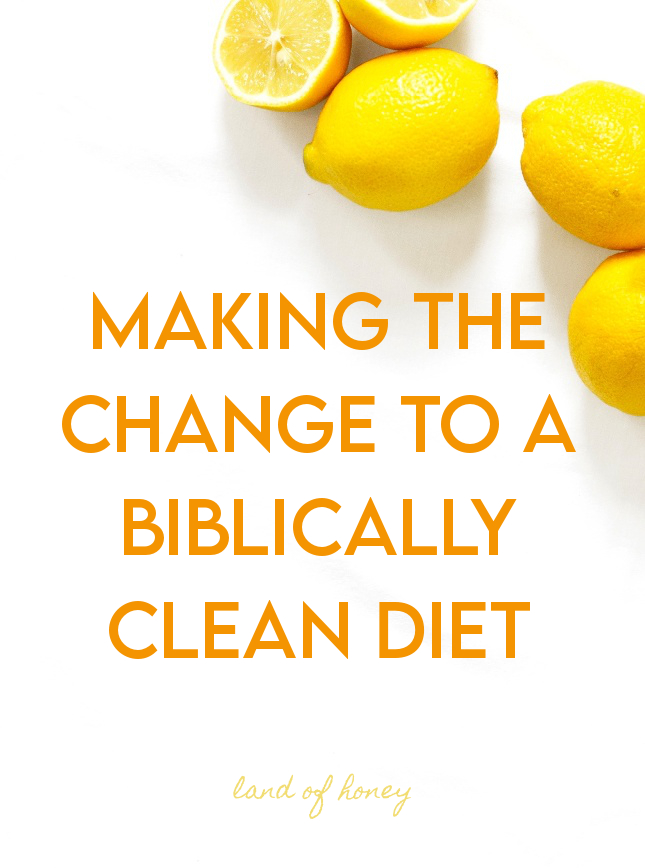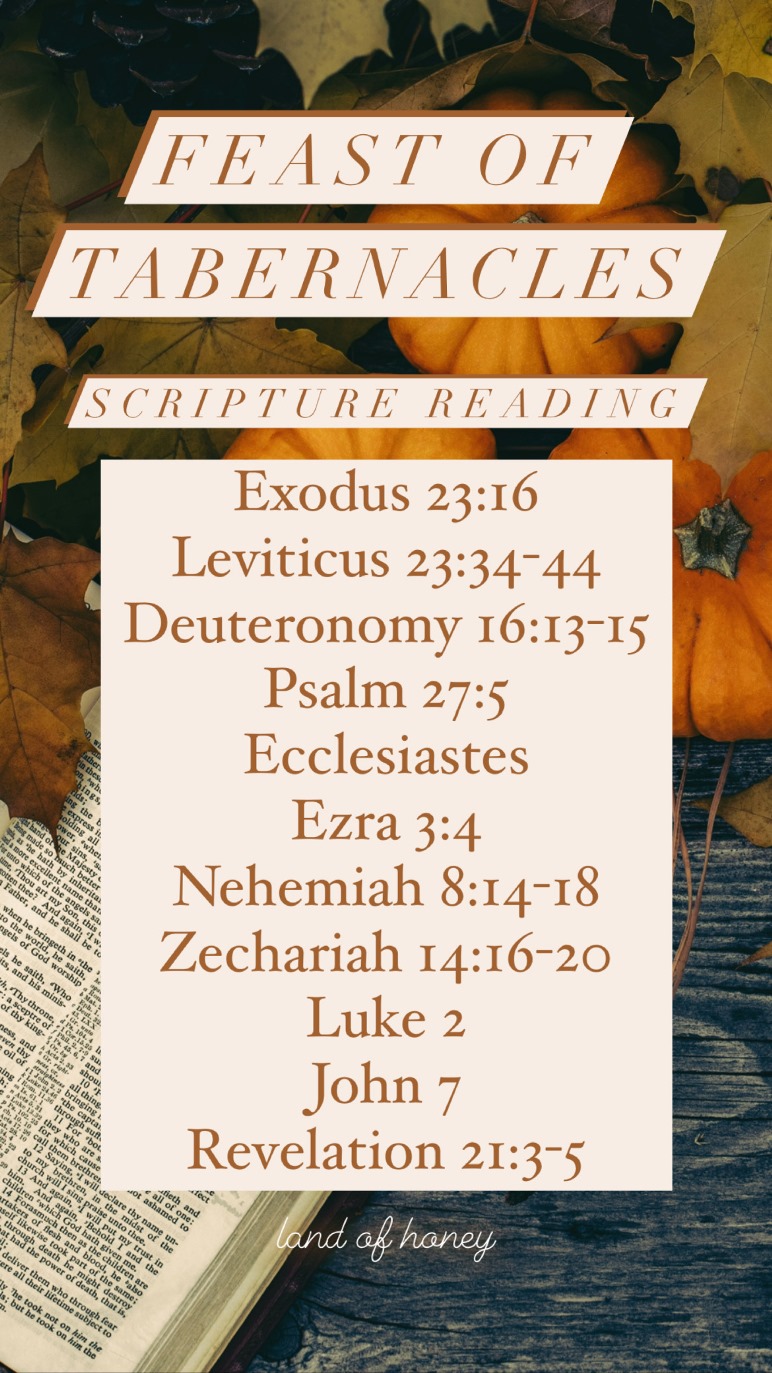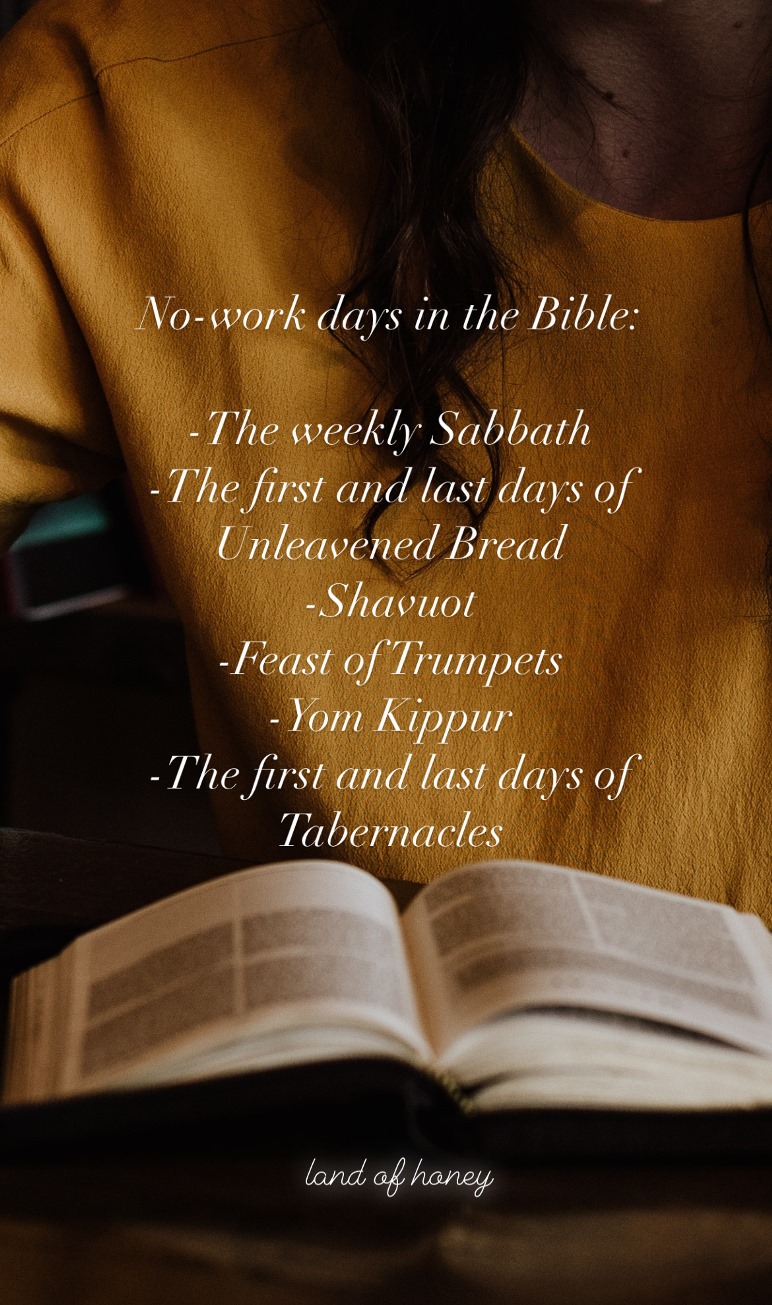You've decided you want to start eating the way that Scripture instructs, now where do you begin? Today I want to talk you through the practical side of how you can eat a diet that is Biblically clean.
What is Biblically clean eating?
If you're not familiar with what Biblically clean eating is then see this post. It's not complicated, it's just making sure we don't consume animals that the Bible calls unclean, such as pigs, shellfish, and fish that don't have fins or scales. On a Biblically clean diet you are free to consume clean meats such as beef, lamb, chicken, and fish with fins and scales, as well as all vegetables, fruits, grains, beans, herbs, nuts, eggs, and dairy products.
Once you are familiar with what foods are considered Biblically clean (really Scripture only calls clean things food - it never refers to pigs, etc. as "food"), it's time to clear the unclean things out of your kitchen, and make a game plan for avoiding them in the future.
Clean out your kitchen.
Go through your refrigerator, pantry, and freezer and look for any products containing unclean animals. This means everything from pork chops and catfish to pepperoni on a frozen pizza or a jar of oyster sauce to a can of pork and beans. Then get rid of these items! Set yourself up for success by getting these things out of your kitchen, and only stocking foods that are Biblically clean.
If you share a kitchen:
If your spouse or roommates or parents are not onboard with Biblically clean eating, then you might not have full control of the kitchen and pantry. In that case, do what you can. Clean out what is yours. Maybe you could designate cupboards or shelves in the fridge that are just for your foods or theirs. You are not obligated to cook or eat meals with unclean things. I know a couple that makes two different sauces each time they have spaghetti. One with pork sausage and one without. If your spouse, parent, or roommate wants to eat something unclean that is their choice, and they can make and purchase those things, but you don't have to be involved in that. You can prepare clean meals, or stick to the clean parts of the meal if someone else cooks.
That said, if it's your kitchen and others in the household aren't on board I don't think you should have to compromise. If you are the homeowner or parent or otherwise in charge, then it's up to you to set the rules for your house. You don't have to let ham or other things forbidden by Scripture live in your fridge or home. Clearly and kindly explain the ground rules for the household.
Make a plan for moving forward.
How are these changes going to affect you? Depending on what your diet was like before, you may have a lot of adjusting to do. You'll want to find alternatives for products you'll no longer be using and things you especially enjoyed. Did you cook with lard before? You'll want to stock up on olive oil or butter so you can use that instead. Can you start using chicken sausage instead of pork sausage? Do you need to break an addiction to bacon? Consider if going cold-turkey would be best for you, or if trying Biblically clean alternatives would be a better fit.
While trying substitutes and new things can be fun, I would also make it a point to turn to recipes and snacks that you already enjoy that are Biblically clean. If it helps, make a list of favorites to turn to when cravings kick in or you're not sure what to do for dinner.
Consider how you will handle meals with others.
It's one thing when you're the one making dinner or ordering takeout. It can be quite another when you're invited to someone else's for a meal. How can you follow Scripture's instructions for eating when you're not in charge of the menu?
You'll want to politely let your host know of your dietary changes. A sentence like, "I'd love to come, but I have to let you know that my diet has changed and there are certain things I don't eat anymore." Or, "I've always loved your barbecue, but my diet has changed. Is there anyway we could do chicken or beef instead? I'd be happy to buy the meat." Offering to chip in and bring part of the meal is always thoughtful, or in some cases you might be better off suggesting going out for dinner or inviting them to your house instead.
Or what if your grandma serves ham at every family get together? Make a game plan that works for you. You could go and plan to just skip the ham and make a meal of the side dishes. Or you could offer to make and bring chicken or roast beef. If you're attending a potluck, take Biblically clean things that you will enjoy eating. If nothing else, you can enjoy the dishes you brought and share a meal with friends and family.
Does your office buy pepperoni pizza every Friday? You can see if they'd order another kind for you, or you could start packing your lunch.
Whatever the situations you may find yourself in: your meals are your responsibility. While some family and friends might be accommodating, it is not the job of everyone else to adjust to your new diet. Come up with your own plan; that could be taking several dishes to a dinner party or paying for your own pizza. That could be sticking to eating side dishes at a barbecue or suggesting a restaurant that you enjoy for lunch with a friend.
Change what you buy.
Don't bring home unclean products anymore! Learn to read labels. Get in the habit of looking at the ingredients list for everything you buy at the grocery store. If you don't know what an ingredient is then don't buy it. If you're buying hot dogs or a similar product make sure they're all beef. Watch out for things like lard in refried beans, and gelatin (which is mostly pork-based) which often shows up in yogurt and marshmallows.
Kosher certification labels can be helpful. Common symbols for kosher certification are a K inside a circle or Torah scroll, or a U inside a circle. If a product is kosher certified it means that there are no unclean animals or byproducts of unclean animals in that product. Keep in mind that there are some differences between eating Biblically clean and eating kosher.
Pray about how you can best communicate your new dietary choices with others. Work to do so in a way that is gentle and kind, and not demanding or boastful. I find that if I just share that I feel like YHWH has called me to this lifestyle, people are more accepting and less defensive.
Related posts:







































